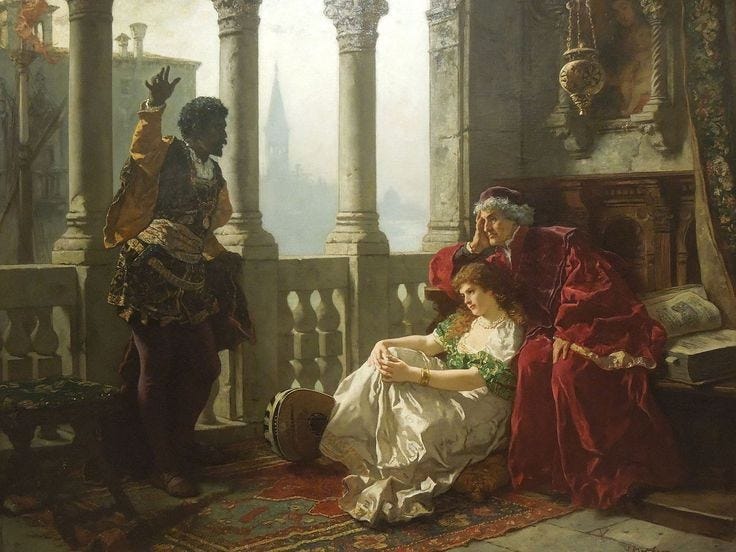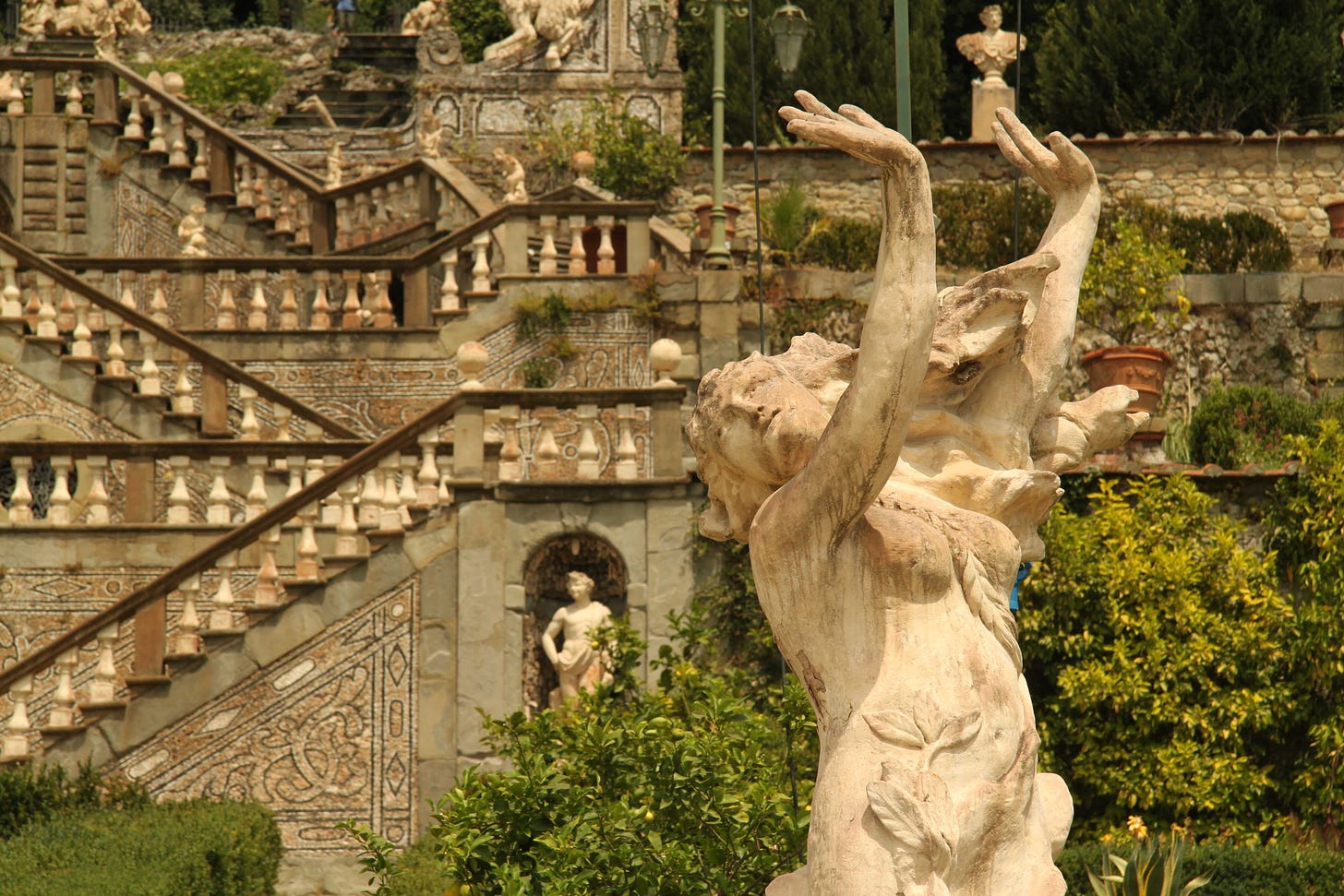A 19th century composer by the name of Gustav Mahler once said that “Tradition is not the worship of ashes, but the preservation of fire.” This quote carries a lot of meaning for me, as I hold a deep passion for the study of history, and much of that involves understanding how traditions came to be and the reason why they endured.
Poetry is among the most enduring of human traditions, and it's plainly obvious, to me anyway, that it’s retained its essence while transforming across time and culture. And that essence, I believe, is the urge of the human spirit to demand its acknowledgement with minimal inhibition and maximal force and say, “The cosmos speak through me. I was. I am. Will be.”
It’s nothing short of a frenzied, bare-naked battlecry against a void which deals its blows by mediocrity, civility, and banal subterfuge.
And so, compelling it may be, the desire to carry ancient voices through perpetuity is powerful, but those ancient voices are also our voices. They were human, and so are we. The need to crystallize a ripple in this ever-flowing stream is both futile and disrespectful — for how irritating would it be to observe a poem you thought was written in some far away land in a far away time, only to discover it was actually written by some student at NYU only a few months ago? Perhaps you’d feel robbed and the experience cheapened.
Granted, I don’t think there’s anything wrong with practicing old forms, as it’s important to study the masters and that often begins with imitation. But eventually you must deliver your own personal signature, along with the spirit of our times, because we simply can’t understand the zeitgeist we’re copying outside of some dead and theoretical body of knowledge. We’re looking at bones here, but poetry is flesh and blood.
I’ve naturally come across some modern poets who wish to return to the glory days of chivalry, faith, and humanist principle, when men were men and women were women, so to speak; a time when the liberal arts were still sexy and erudite, rather than neutered, spayed, and injected with dogma. So they take these old forms and try to recreate the epics and sonnets and what-have-you. It’s a noble endeavor, sure, but without a noble outcome. While many of their works display a high degree of technical proficiency and aesthetic polish, I’ll readily admit, still there there’s always something vital missing. Here are some examples of what I mean:
Arbitrarily elevated language — In an outright embarassing attempt to sound elegant and archaic, poets miss the purpose for the function. And that purpose may be variable. Now, without explicit records from any specific poet we can’t be certain but, perhaps in some instances, outdated languages were used because they existed in a raw vernacular, having preceded a standardized set of grammar. These vernaculars, such as middle English or medieval Tuscan, followed naturally-derived principles of phonetics and aesthetics, and deftly promoted the faculty of speech. Contemporary speakers, writers, and poets therefore molded their local dialect in such a way as to roll off the tongue and sound pleasant to the ears. These minor changes, which accumulated over time, resulted in common words acquiring a special connotation that encoded a regional spirit. In contrast, modern “proper” language suits the purpose of universal communication and mutual intelligibility, but it’s a weaker tool for conveying ideas and emotions in verse, as the elemental language of the psyche simply doesn’t care for prescribed syntax.
For a Renaissance-period discussion on the virtues and vices of employing archaic language in the written form, I suggest a reading of The Book of the Courtier, by Baldassare Castiglione, which was widely considered by contemporaries across Europe to have captured the spirit of the time.
The tone is over-serious and over-important — Bravery in battle, glory, majestic mountains, everlasting love, and other impressive things are the themes so often played to death in old poetry. And while those themes were certainly common, they were also tempered by human rather than heroic reflection. Warriors had doubts, fears, and rapacious lust (Arthurian). Lovers grew petty and jealous (Othello). Platonic adoration groaned under the weight of romantic yearning (anything addressed to Elisabetta Gonzaga). Leaders, kings, and queens wondered if they were tyrants and were faced with their betrayals (Macbeth).
The takeaway here is that there's always room for flaws in the spirit. Likewise, there should always be room for an impressive feat to occur at the hands of a vulgar, mercurial, or simply misguided idiot.
The metaphors are straightforward — It sounds silly to have to point this out, but people in the past were clever too. Much of the poetry which has stood the test of time is chock-full of innuendo, subtle references, and double-entendres — so much that people like me end up enjoying classical poetry on its own merits (as opposed to a snobby appreciation for old things). There are few things as satisfying as getting a joke or hint that’s been buried for five-hundred years.
For reference, I present to you three fragments I’ve written in a classical style, but with my own personal signature:
A Toast to Ghosts
“To our Lady Gonzaga.”
My throat doth burn to down a spirit stiff.
From wells that fill ‘t sour nectars, spill-ed
Mourning glories
Against these lips.
/
“To Elisabetta.”
Like it was yesterday when thou were here,
A yesteryear,
Whence all tomorrows far, familiar spoke
So near to fall.
Anon the morrows all for thee had come,
Tomorrow's past, for me forever gone.
Whispers in the Roman Garden
Methought of eras never ere I walked;
This place, where many paces had I stepped
While erst, the man afore you now, of whence
Foreseen the present past, and followed ‘t
To spades. Oh, how it vexeth me, so bright
The light of Venus march’d in fallen shades.
A Triumphing Triumvirate of Faceless Whores
This cauldron's blighted stew had boiled
From histories left still and run stagnant,
Whereupon I studied a myth since forgotten
And surrendered to the annals of broken time.
A wordless stone above;
The earth unconsecrated below;
A chisel made blunt, oh so very long ago.
What may kill the man who knows not
Defeat, who never lays his head to rest,
But many a head he lay unseamed —
In dreaming, yet forever sleep?
Aesthetic Analysis
Each of the poems shown have distinct structural similarities as well as differences. All of them are written primarily in iambic pentameter, yet only the second immediately invokes Shakespeare, whereas the first has a slanted relationship and the third can no longer rightly be called “classical”.
The first fragment is stylized to promote lyricism as its principle virtue. The reason for this is because the characters who are speaking are actually thinking, whereby the verse represents a strong feeling which the characters haven’t yet translated to words.
The context of the second fragment is too dense to explain here, however I can say that the content is heavy on contradiction and resolving it through wordplay. Shakespeare is also keen on this principle, though I still emphasize lyricism as the primary consideration when writing in classical styles.
The third fragment relies on modern English yet presents it in such a way that it could easily fit into the medieval period. This is because this character isn’t supposed to be speaking English, but either Latin or Gaelic. Therefore, to translate his speech to a Middle English dialect would be absurd as he doesn’t understand it!
Conclusion
Poetry is a medium of expression which is dynamic and demands vitality, and this applies to themes of malaise and languish as well, for any theme effectively presented will carry its substance independently from its aesthetic principles. This is achieved while also integrating with the aforesaid principles, and what that means in poetic terms is there’s life even in death.
Thus, when we look at classical art or read classical poetry, we may be observing a dead husk, soon to be analyzed and dissected by English professors, but its essence — its flame — still lives on inside us, so there’s no need to dabble in necromancy, unless if you’re into that sort of thing.






Super interesting topic to me—I’ve been thinking about these same themes, but as it relates to the technology of human communication. Classic poems aren’t history so much as a strata of our collective progress in using printing machines instead of oral traditions (eg the Filihd of ancient Ireland)